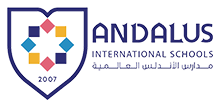Accreditation & Affiliations
Cognia Accreditation
AAIS was initially accredited during the Spring of 2009 and reaccredited in Spring of 2015. Accreditation is a tool of ensuring continuous school improvement. AAIS Leadership implements the Cognia Standards of Quality to guide our school improvement efforts. Cognia standards have repeatedly improved the efficiency, awareness, and quality of our teamwork (with Focus Group Leaders) and accountable system of communicating with stakeholders to build on ongoing improvement plans.
What is Accreditation?
Accreditation is a voluntary method of quality assurance developed more than 100 years ago by American universities and secondary schools. Today, to demonstrate educational quality, accreditation is used by education providers of all types from traditional schools to distance learning providers to tutoring centers serving all ages of students from toddlers to adults. Accreditation engages the school community in meeting high quality standards, implementing a continuous improvement, and engaging in quality assurance through internal and external periodical reviews.
What is Cognia?
Cognia is a non-profit, non-governmental organization that accredits primary and secondary schools throughout the United States and internationally. Cognia (formely AdvancED) was formed in 2006 by the consolidation of the pre-college divisions of two of the U.S. regional accreditation organizations: the Commission on Accreditation and School Improvement of the North Central Association of Colleges and Schools (NCA CASI), and the Council on Accreditation and School Improvement of the Southern Association of Colleges and Schools (SACS CASI). In 2012 the Northwest Accreditation Commission (NWAC) joined AdvancED. At the end of the 2010-2011 AdvancED reported that it served more than 27,000 institutions including 3,000 that were engaged in school improvement but not yet accredited.
Benefits of Accreditation
It puts a stamp of approval on graduates: graduating from an accredited institution indicates that graduates are expected to be ready to practice at a certain level.
It provides educational programs with opportunities for self-definition and self-reflection, and with feedback on program content and direction.
It affords the opportunity for continuous improvement of institutions and educational programs.
Accreditation protects the interests of students, their parents, the academic institutions themselves, and potential employers, by ensuring that the educational programs offered have attained a level that meets or exceeds standards that were developed by experts in the field. While accreditation does not ensure that every graduating student will become a successful professional, it does guarantee that the student has demonstrated a certain set of skills and abilities that are reflected in the accreditation criteria. It is not a sufficient condition for professional success, but in some disciplines it serves as a necessary condition.
What does accreditation mean to me as a parent?
A school's commitment to accreditation assures parents and the community that the school is focused on raising student achievement, providing a safe and enriching learning environment, and maintaining an efficient and effective operation. An accredited school adheres to high quality standards based on the latest research and successful professional practices. NCA CASI/SACS CASI accreditation means that your school has opened its doors to review and support from an organization bringing 100 years of experience in improving educational quality.
Do I have a role in accreditation as a parent?
Yes. You can assist with accreditation efforts by:
■ Staying informed about your school’s accreditation.
■ Educating other parents about your school’s accreditation.
■ Reinforcing the skills your school is teaching your children.
■ Becoming an active member of your school’s continuous improvement team and/or internal and external review process.
■ Requesting and participating in opportunities to provide feedback to your school, i.e., parent surveys, focus groups, and parent meetings.
What are the benefits to my children attending an accredited school?
- Students who attend a school accredited by NCA CASI or SACS CASI can rest assured that the school is committed to raising students’ performance and held accountable for improving student learning on a continual basis. Accreditation means that students have:
- Qualified teachers who are continually working to improve their practices and teaching methods in order to increase student performance.
- Access to a rich, diverse, and sound curriculum Access to a range of student activities and support services.
- Transferability of credits from school to school. The school credits that students earn at an NCA CASI/ SACS CASI accredited school are recognized by schools, colleges, and universities globally. Through Cognia’s reciprocal agreements with sister accrediting organizations, students can continue their educational goals in the United States or around the world.

